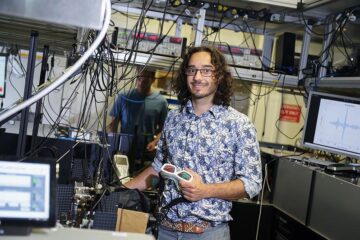CHK1- & CHK2-SNPs – Functional genetic polymorphisms (SNPs) in the human CHK1- and CHK2- gene for numerous pharmacogenetic appl

Enclosed are new, functionally relevant single nucleotide polymorphisms (SNPs) in regulatory sequences of the human checkpoint-kinase-1 & 2 (CHK1 & CHK2) genes, which play a central role in the control of the cell cycle arrest. Distinct genotypes of these SNPs determine the tissue expression of CHK1/2 and influence the risk for different cancer entities, the progression thereof and the effects of pharmacological and non-pharmacological therapies.
Commercial Opportunities CHK1- and CHK2-SNPs have been well validated. Genotyping of these SNPs will allow identifying responders and non-responders under therapy with CHK-inhibitors and other anti-cancer drugs. Besides the pre-estimation of the efficacy of pharmacological therapies, dose adjustments of non-pharmacological therapies like irradiation should be possible. Genetic association studies have clearly demonstrated significant effects of CHK1- and CHK2-SNPs upon the outcome in different haematological and solid cancers. For example, excellent correlations with the progression of CLL, bladder, colorectal carcinoma and glioblastoma have been observed. The prognostic value will also be given for other cancer entities. Since the biological function of the CHK1 and CHK2 are well known and characterized, corresponding diagnostic tests will be widely accepted.
Weitere Informationen: PDF
PROvendis GmbH
Tel.: +49 (0)208/94105 10
Ansprechpartner
Dipl.-Ing. Alfred Schillert
Media Contact
Alle Nachrichten aus der Kategorie: Technologieangebote
Neueste Beiträge

Neue universelle lichtbasierte Technik zur Kontrolle der Talpolarisation
Ein internationales Forscherteam berichtet in Nature über eine neue Methode, mit der zum ersten Mal die Talpolarisation in zentrosymmetrischen Bulk-Materialien auf eine nicht materialspezifische Weise erreicht wird. Diese „universelle Technik“…

Tumorzellen hebeln das Immunsystem früh aus
Neu entdeckter Mechanismus könnte Krebs-Immuntherapien deutlich verbessern. Tumore verhindern aktiv, dass sich Immunantworten durch sogenannte zytotoxische T-Zellen bilden, die den Krebs bekämpfen könnten. Wie das genau geschieht, beschreiben jetzt erstmals…

Immunzellen in den Startlöchern: „Allzeit bereit“ ist harte Arbeit
Wenn Krankheitserreger in den Körper eindringen, muss das Immunsystem sofort reagieren und eine Infektion verhindern oder eindämmen. Doch wie halten sich unsere Abwehrzellen bereit, wenn kein Angreifer in Sicht ist?…

















